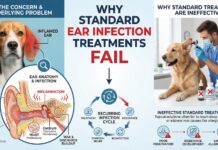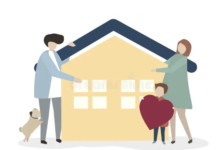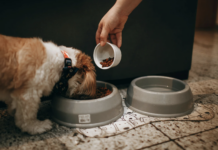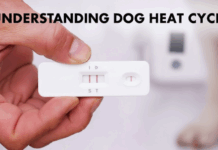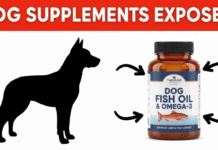Last Updated on December 18, 2022 by Dogs Vets
A Quick Guide to Puppy Developmental Stages
If you have a new furry friend, then you need to be aware of puppy developmental stages. Here’s what you need to know about the growth of your puppy.
Did you know that 70% of U.S. households owned a pet? And are you wondering how to get your new furry friend off to the best start in life?
Watch them grow and flourish if you follow their puppy developmental stages. Puppy stages last for about 18 months, but you can expect development for two years.
Knowing what to expect will help you to respond at the right time. If you acknowledge as soon as possible and in the right way, your friend will grow up quickly into a well-adjusted companion.
Read on to learn more about puppy developmental stages.
Newborn Stage
The Newborn Stage generally begins at birth and lasts up to two weeks of age. During this stage, puppies will display instinctual behavior like searching to find their mother and trying to collect around her and their mates for warmth.
At this stage, puppies rely heavily on instincts and do not have developed muscles to lift their heads or crawl. During the Newborn Stage, parents should provide a clean and safe environment.
One of the famous books said that puppies have an immature immune system and will be at risk of picking up a disease from contaminated surfaces, read more about this to learn more.
Socialization Stage
This stage occurs between four and 16 weeks of age. During this time, puppies must become familiar with the world around them. The growing puppy learns appropriate behaviors for interacting with both people and other animals.
Socialization should be gentle, positive, and conducted in an environment where the puppy feels secure. Time spent on socializing can also help develop the puppies’ tolerance, confidence, and adaptability, ensuring they grow into a well-adjusted and reliable family member.
Fear-Imprint Stage
This puppy’s developmental stages typically occur between 4 and 12 weeks, when a puppy is susceptible to learning. In this stage, a puppy is sensitive to strange sounds, objects, and people.
A puppy can develop fear or distrust of these new experiences if not managed properly. To prevent fear from developing, owners should introduce their pups to new things positively and gently.
Juvenile Stage
The juvenile stage is developmental milestones. It is a step as your puppy develops from a dependent young pup to an independent mature dog. During this stage, puppies are eager to explore their environment and learn new things.
Despite their newfound independence, puppies at this stage still need a lot of love and attention; they will likely be very clingy when you are present. Be sure to take your pup on daily walks, give them plenty of playtime, and practice positive reinforcement when they obey commands to promote healthy growth and dog development.
Know These Puppy Developmental Stages
It is essential to recognize the different puppy developmental stages to ensure optimal health and well-being of a pup. With this quick guide, you will now understand the various stages from newborn, socialization, fear-imprint, and juvenile stage.
Make sure to give your pup lots of love, attention, and pet care throughout its growing stages!
Learn more and check out the rest of our blog posts.
Facts Check
We hope you enjoyed this article… What are your thoughts?
Please feel free to share this article!


